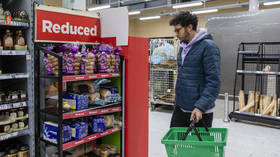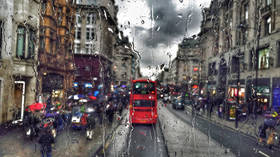Bank of England tells Britons to accept they are poorer

British households and businesses need to accept that they are worse off and should stop asking for wage increases and pushing prices higher, the Bank of England’s chief economist, Huw Pill, said on Tuesday.
According to Pill, “a series of inflationary shocks” generated by the pandemic, the conflict in Ukraine, and crop shortages have sent prices in the UK to a 40-year high. He claimed that in response to surging bills and other rising costs, workers and businesses are attempting to transfer the impact of inflation onto each other.
People “try and pass that cost on to one of our compatriots, saying ‘we’ll be all right, but they will have to take our share too,’” Pill argued. He warned that the “pass the parcel game that’s going on here… that game is generating inflation, and that part of inflation can persist.”
Instead, people have to realize that they are poorer because “if the cost of what you’re buying has gone up compared to what you’re selling, you’re going to be worse off,” he said.
The UK is a large net importer of natural gas, which has been rising in price more rapidly over the past year than the value of the country’s exports, mainly services, the economist noted.
“So somehow in the UK, someone needs to accept that they’re worse off and stop trying to maintain their real spending power by bidding up prices, whether higher wages or passing the energy costs through on to customers,” he concluded.
Annual inflation in the UK stood at 10.1% in March, driven largely by soaring food prices, while the country’s cost-of-living crisis has shown little sign of abating. Although the inflation rate dipped from 10.4% in February, it fell less than expected and is still well above the Bank of England’s target of 2%.
For more stories on economy & finance visit RT's business section














